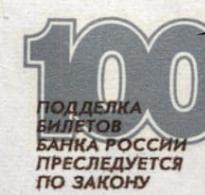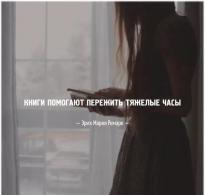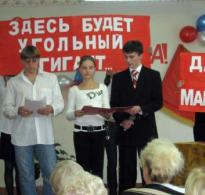Works. The image and characteristics of the Colonel at the ball and after the ball in the story "After the Ball" by Leo Tolstoy Brief description of the characters after the ball
Characterization of three heroes in the work after the ball (Tolstoy L.N.) and received the best answer
Answer from CARAMELKA[guru]
From love for her, I.V. "was happy, blessed, ... was ... some kind of unearthly creature that knows no evil and is capable of good alone." The hero feels that he loves all people. All of them are so wonderful: the hospitable leader with his wife, and the plump-shouldered lady, and Varenka's father, who danced with his daughter so touchingly and carefully. The young people spent the whole evening together.
After that, under the influence of impressions, IV goes to wander around the city. In the morning, on the first day of Great Lent, I.V. comes across a terrible picture. He sees the punishment of the fugitive Tatar. He is passed through the line of soldiers, each of whom whips the Tatar's bare back with gauntlets. The back of the Tatar turned into a mess: “variegated, wet, red.” The unfortunate Tatar begs the soldiers for mercy: "Brothers, have mercy." But Colonel B., Varenka's father, strictly followed so that "the brothers would not show mercy." He walked with a "firm, trembling gait" paired with a Tatar. One of the soldiers “smears”, weakens the blow, for which Colonel B. hits him in the face. IV was horrified by what he saw. He thought that the colonel probably knew something that allowed him to behave like that both at the ball and on the parade ground. But the hero himself is not capable of such hypocrisy. He refuses military service and from marrying Varenka.
Source: who else do you need?
Answer from Inna Pantelova[newbie]
Answer from Ѐuslan Shikhaliev[newbie]
xs
Answer from Lyolya Pitel[newbie]
Pyotr Vladislavovich is a military commander of the type of an old campaigner of the Nikolaev bearing, handsome, stately, tall. He has a ruddy face, a white mustache and sideburns, "an affectionate joyful smile ... in sparkling eyes and lips."
Answer from Igor Veselko[newbie]
Ivan Vasilyevich is the main character of the story. The story is told from his perspective.
The story takes place in a provincial town in the 1840s. At that time I. V. was a student and lived enjoying his youth. At Shrovetide, the hero was invited to a ball to the provincial marshal. The “lady of his heart” was also present - Varenka B.
From love for her, I.V. “was happy, blessed, ... was ... some kind of unearthly creature that knows no evil and is capable of only good.” The hero feels that he loves all people. All of them are so wonderful: the hospitable leader with his wife, and the plump-shouldered lady, and Varenka's father, who danced with his daughter so touchingly and carefully. The young people spent the whole evening together.
After that, under the influence of impressions, IV goes to wander around the city. In the morning, on the first day of Great Lent, I.V. comes across a terrible picture. He sees the punishment of the fugitive Tatar. He is passed through the line of soldiers, each of whom whips the Tatar's bare back with gauntlets. The Tatar's back turned into a mess: "variegated, wet, red." The unfortunate Tatar begs the soldiers for mercy: "Brothers, have mercy." But Colonel B., Varenka's father, strictly followed so that "the brothers would not show mercy." He walked with a "firm, trembling gait" paired with a Tatar. One of the soldiers “smears”, weakens the blow, for which Colonel B. hits him in the face. IV was horrified by what he saw. He thought that the colonel probably knew something that allowed him to behave like that both at the ball and on the parade ground. But the hero himself is not capable of such hypocrisy. He refuses military service and from marrying Varenka.
Pyotr Vladislavovich (Colonel B.) is the father of Varenka, Ivan Vasilyevich's lover. He is "a military commander of the type of an old campaigner of the Nikolaev bearing." P.V. is handsome, stately, tall. He has a ruddy face, a white mustache and sideburns, "an affectionate joyful smile ... in sparkling eyes and lips."
P. V. was accustomed both in the service and in society to do everything “according to the law.” Dancing with his daughter, the colonel observes all the rules of etiquette. On the parade ground, he, with skill, controls the execution of a fugitive Tatar. Holding a suede-gloved hand on the daughter's waist and hitting a soldier's face with the same suede-gloved hand does not make much difference to P.V. In Ivan Vasilyevich's imagination, the image of Colonel B. splits into two: the angelic features of the hero (his appearance at the ball) begin to intertwine with demonic features (the scene of the punishment of the Tatar), showing the true appearance of P.V.
Answer from Keraneko[newbie]
Pyotr Vladislavovich (Colonel B.) is the father of Varenka, Ivan Vasilyevich's lover. He is "a military commander of the type of an old campaigner of the Nikolaev bearing." P.V. is handsome, stately, tall. He has a ruddy face, a white mustache and sideburns, "an affectionate joyful smile ... in sparkling eyes and lips."
P. V. was accustomed both in the service and in society to do everything “according to the law.” Dancing with his daughter, the colonel observes all the rules of etiquette. On the parade ground, he, with skill, controls the execution of a fugitive Tatar. Holding a suede-gloved hand on the daughter's waist and hitting a soldier's face with the same suede-gloved hand does not make much difference to P.V. In Ivan Vasilyevich's imagination, the image of Colonel B. splits into two: the angelic features of the hero (his appearance at the ball) begin to intertwine with demonic features (the scene of the punishment of the Tatar), showing the true appearance of P.V.
The story "After the Ball" is based on a real event that Tolstoy learned about when he was a student living with his brothers in Kazan. His brother Sergei Nikolaevich fell in love with the daughter of the local military commander L.P. Koreysha and was going to marry her. But after...
1. The contrast of the color palette. 2. Contrasting feelings and things. 3. Link of contrasting passages. In Leo Tolstoy's story "After the Ball" contrast plays a structure-forming role in the creation of the work. Two sides of the same coin become...
The story of Leo Tolstoy describes the events that took place in Russia during the reign of Nicholas I. That was the harsh time of the reign of the tsar, frightened by the uprising of the Decembrists and intensified the reaction of public life. The composition of the story is...
Varenka's father was a very handsome, stately, tall, fresh old man, he was beautifully built. The colonel at first refused to dance with his daughter, but then he nevertheless agreed ... The grandiose figure of Varenka floated near him, it was clear that her father had once ...
The story "After the Ball" is one of the last works of Leo Tolstoy. He tells about a dramatic event - the punishment of a soldier with gauntlets. Using the well-known technique of “a story within a story”, the writer achieves the utmost reliability of the narration....
On this morning of Forgiveness Sunday, I returned from the ball at five o'clock, inspired by tender feelings for Varya. I was so light in my soul that it was impossible to sit at home. My brother was asleep, and I decided to take a walk on the last morning before Lent. It was the most carnival...
43ec517d68b6edd3015b3edc9a11367b
43ec517d68b6edd3015b3edc9a11367b
43ec517d68b6edd3015b3edc9a11367b
The story is narrated on behalf of Ivan Vasilyevich, who, answering the question of what is needed for personal perfection, shares an event that changed his life.
While studying at the university, he was in love with a girl named Varenka. Once, on Shrove Tuesday, at a ball at the governor's, he saw her father, Colonel Pyotr Vladislavovich, who aroused real admiration in him. Ivan Vasilyevich himself danced at the ball only with Varenka, and when the hostess of the evening asked the colonel to walk in the mazurka with her daughter, he, along with other guests, enthusiastically watched them.
After the ball, Ivan Vasilyevich could not fall asleep in any way, so he decided to take a walk around the city. Somehow it happened that he ended up near Varenka's father's house. Not far from the house, he saw a crowd and went closer to see what was happening there. It turned out that it was the soldiers who drove the deserter through the line. Varenka's father watched everything that was happening, who demanded that the soldiers do not spare the deserter and forcefully lower the sticks on his back. When the colonel saw Ivan Vasilyevich, he did not show that they knew each other.
This event could not get out of the narrator's head. He thought for a long time about how to relate to what he saw. And it was precisely this that influenced not only the fact that he could not enter the service, but also his feelings for Varenka, since, seeing her, he immediately recalled the scene of the punishment he had seen.
The main characters of "After the Ball:"
Ivan Vasilyevich - the story is being told on his behalf, the main character
Varenka is a girl with whom Ivan Vasilyevich was in love.
Petr Vladislavovich- Varenka's father (colonel).
A short retelling of "After the Ball" in abbreviation was prepared by Oleg Nikov for the reader's diary.
In the story "After the Ball" the main characters are Ivan Vasilyevich and the colonel, Varenka's father.
The story is told on behalf of the hero-narrator. This is Ivan Vasilyevich, he tells about his youth (this was in the forties, Ivan Vasilyevich was a student at a provincial university).
He recalls this period because it was then that he made important life discoveries that changed, as he believes, his fate.
The narrator was in love with Varenka, whom he describes as a wonderful beauty: “... in his youth, eighteen
years, she was charming: tall, slender, graceful and majestic, just majestic.
Tolstoy includes many details in the narrative, which make it possible to judge that the hero was really happy, was in love and perceived the world easily and brightly.
The description of the ball is of great importance. The whole atmosphere of the ball creates the mood of the narrator: delight, gratitude, tenderness, endless happiness, which “grew and grew”. This mood and perception is explained by the state of love experienced by the young man.
Varenka's father is also at the ball, he is "handsome, stately, tall
and a fresh old man." He danced with his daughter, everyone admired this couple, the colonel is gentle and sweet towards his daughter. For this man, the narrator during the ball “experienced some kind of enthusiastic tender feeling.”
To deepen the idea of Colonel Tolstoy masterfully uses the technique of antithesis. More important for him is what happened after the ball: the scene of punishment that Ivan Vasilyevich saw radically changed his ideas about life. The man in charge of the execution is Varenka's father. He walks beside the soldier who is being "chased for the escape", calmly and firmly.
Ivan Vasilievich also saw how the colonel “with his strong hand in a suede glove hit the face of a frightened, short, weak soldier because he did not put the stick on the red back of the Tatar enough.”
It becomes scary how much a person has changed. What is the real colonel? He is most likely the real one in the punishment scene. And at the ball, he simply played the role of a hospitable host and loving father.
Ivan Vasilyevich's feelings are also understandable: his lofty feelings were completely destroyed by what he saw on the square.
Ivan Vasilyevich analyzes his feelings, he saw the colonel with different eyes. Maybe Varenka is completely different, but the narrator has already lost that fresh and bright feeling that he had at first for her.
Glossary:
- after the ball the main characters
- the main characters of the story after the ball
- main characters after the ball
- Tolstoy after the ball the main characters
- after the ball heroes
Other works on this topic:
- Colonel at the ball and after the ball The story that formed the basis of the story "After the ball" LN Tolstoy heard from his brother. She impressed him so much...
- Why the story is called "After the Ball" As you know, the story of Leo Tolstoy "After the Ball" was based on real events. In it, the writer told about one story, ...
- Reason and feelings The story “After the Ball” was written in 1903 and belongs to the late works of Leo Tolstoy. In it, the author retold the story heard ...
- Cruelty Leo Tolstoy's story "After the Ball" was published after the death of the writer, namely in 1911. The plot is based on a story told by a brother...
- 1. The Colonel is one of the main characters in L. N. Tolstoy's story "After the Ball." 2. Varenka's father at the ball: a) the appearance of the hero shows that he ...
- Duplicity The story “After the Ball” is one of the last and most interesting works of Leo Tolstoy. In it, he denounced the duplicity of the Colonel, who appears in the light ...
- Morning that changed life The story “After the Ball” was written by L. N. Tolstoy in the last years of his life and published after his death, in 1911 ....
Characteristics of the hero
Ivan Vasilyevich is the main character of the story. The story is told from his perspective.
The story takes place in a provincial town in the 1840s. At that time I.V. was a student and lived enjoying his youth. At Shrovetide, the hero was invited to a ball to the provincial marshal. The “lady of his heart” was also present - Varenka B.
From love for her I.V. “I was happy, blissful, ... I was ... some kind of unearthly creature who knows no evil and is capable of good only.” The hero feels that he loves all people. All of them are so wonderful: the hospitable leader with his wife, and the plump-shouldered lady, and Varenka's father, who danced with his daughter so touchingly and carefully. The young people spent the whole evening together.
After that, under the influence of impressions, I.V. goes to wander around the city. In the morning, on the first day of Great Lent, I.V. stumbles upon a terrible scene. He sees the punishment of the fugitive Tatar. He is passed through the line of soldiers, each of whom whips the Tatar's bare back with gauntlets. The Tatar's back turned into a mess: "variegated, wet, red." The unfortunate Tatar begs the soldiers for mercy: "Brothers, have mercy." But Colonel B., Varenka's father, strictly followed so that "the brothers would not show mercy." He walked with a "firm, trembling gait" paired with a Tatar. One of the soldiers “smears”, weakens the blow, for which Colonel B. hits him in the face. I.V. was horrified by what he saw. He thought that the colonel probably knew something that allowed him to behave like that both at the ball and on the parade ground. But the hero himself is not capable of such hypocrisy. He refuses military service and from marrying Varenka.





